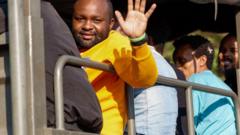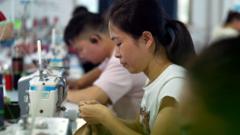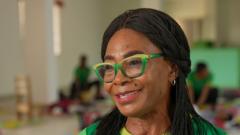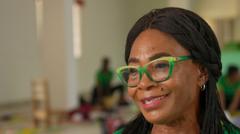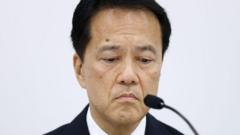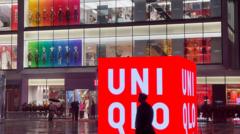The stories of Korean survivors from the Hiroshima bombing highlight their ongoing battles with health issues, social stigma, and a quest for acknowledgment, as they confront a painful legacy of the past while living in Hapcheon, South Korea.
The Unheard Voices of Korean Atomic Bomb Survivors in Hapcheon

The Unheard Voices of Korean Atomic Bomb Survivors in Hapcheon
Survivors of the Hiroshima bombing share their painful memories and ongoing struggles for recognition in South Korea, shedding light on a largely forgotten chapter of history.
At 8:15 AM on August 6, 1945, the skies over Hiroshima were shattered by the explosion of the atomic bomb 'Little Boy', a devastating historical event that forever changed the lives of those beneath it, including a significant number of Koreans. Lee Jung-soon, now 88, recalls the chaos of that morning when her father rushed back to evacuate her from school. “I could only cry,” she reflects, portraying the horror that engulfed a city of over 420,000, where death was so pervasive that the bodies left behind were described in grotesque terms, reduced to mere eyes visible amid the charred remains.
The bomb's impact was immediate and catastrophic, claiming around 70,000 lives on the first day and leading to countlessMore fatalities from radiation in the ensuing months. However, what often goes unnoticed is that approximately 20% of the victims in Hiroshima were Koreans. At the time, Korea was under Japanese colonial rule, and many Koreans lived in Hiroshima, either as forced laborers or in search of better living conditions.
As survivors like Shim Jin-tae, now 83, recount their stories, a theme of neglect surfaces. He highlights the lack of accountability from both Japan, which dropped the bomb, and from Korea itself, which has largely ignored its victims. “No one takes responsibility,” Shim asserts. He now resides in Hapcheon, a village that has become synonymous with the suffering of Korean atomic bomb survivors, many of whom returned to Korea only to face stigma and discrimination.
Lee Jung-soon’s health deteriorated significantly post-bombing, manifesting in skin cancer and Parkinson’s disease, while her son Ho-chang is grappling with kidney failure. This legacy of illness is a direct consequence, they believe, of radiation exposure—yet proving such a link remains complex and expensive. The Korean Ministry of Health and Welfare is currently studying the genetic impacts of radiation exposure among survivors and their descendants, with the potential for expanded definitions of victimhood, though critics note that this comes decades too late.
Hapcheon’s history mirrors a struggle marked by forced migrations and a harsh colonial experience. Many Koreans found themselves working in dangerous and dehumanizing conditions in Japanese factories and labor camps. The aftermath of the bomb further exacerbated the challenges, as Korean survivors were left to pick up the pieces, often forced to dispose of the many corpses littering the streets.
Upon returning home, these survivors faced immense prejudice. Many viewed them as cursed due to their disfigurements, leading to social ostracism and poverty. It was not until relatively recently that awareness of these struggles has begun to emerge, with the Korean government finally acknowledging the need for more comprehensive research and support for survivors and their families.
Second-generation survivors, such as Han Jeong-sun, reveal how the pain of the past continues to affect new generations, with health issues and stigma tightly knit into their identities. Her son was born with cerebral palsy, a reality that she attributes in part to their family's history with the atomic bomb. Despite these visible scars, there remains a desperate need for formal acknowledgment from the government and society at large.
Initial gestures for reconciliation have been made, but many survivors feel the lack of a formal apology from Japan renders these actions hollow. A significant event recently occurred when Hiroshima officials visited Hapcheon, but the absence of an apology overshadowed the gesture, igniting calls for a genuine reckoning with history.
As long-term activists stress, the stories and truths of survivors are critical—not merely for remembrance, but to prevent history from repeating. Shim emphasizes that the suffering endured must not be forgotten. "Memory matters more than compensation," he insists. The fight for recognition of these Korean survivors continues as they seek acknowledgment not only for themselves but for future generations as well.









